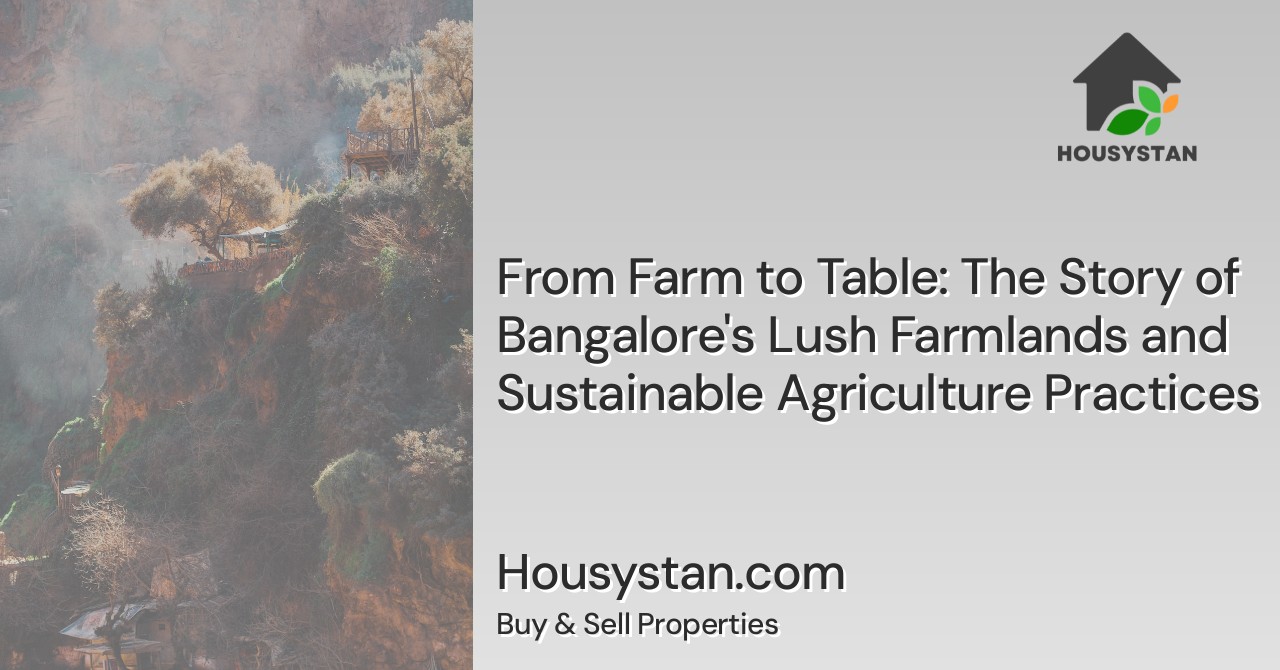From Farm to Table: The Story of Bangalore's Lush Farmlands and Sustainable Agriculture Practices
Read latest blogs and articles from Housystan

The Information mentioned here was last updated on:
29/1/2026From Farm to Table: The Story of Bangalore’s Lush Farmlands and Sustainable Agriculture Practices
Bangalore, known as the Silicon Valley of India, is not just a hub for technology and innovation. The city and its surrounding regions are home to sprawling farmlands that play a vital role in supplying fresh, organic produce to local markets and households. As urbanization expands, the importance of sustainable agriculture in Bangalore has gained significant attention. Farmers in and around the city are adopting eco-friendly practices to ensure that the land remains fertile and productive for generations to come.
One of the unique aspects of Bangalore’s agriculture is the integration of traditional techniques with modern advancements. Many farms utilize organic fertilizers and natural pest control methods to protect both the crops and the environment. Crop rotation and intercropping are frequently practiced, helping preserve soil health and biodiversity. These time-tested approaches, combined with cutting-edge irrigation systems and resource management, make Bangalore’s farmlands a model for sustainability in India.
- Verified Tenants/Buyers
- Unlimited Property Listing
- Zero subscription/charges fee
Local farmers in Bangalore often collaborate with community-supported agriculture (CSA) groups, allowing residents to access seasonal fruits, vegetables, and grains directly from the source. This direct farm-to-table connection not only reduces the carbon footprint associated with transportation but also ensures that consumers receive the freshest possible produce. The rise of farmers’ markets across the city has further strengthened this relationship, fostering trust between growers and buyers while supporting the local economy.
Water conservation is another priority for Bangalore’s agricultural sector. Given the city’s history of water scarcity, innovative methods like rainwater harvesting, drip irrigation, and mulching are widely implemented. These practices reduce wastage and help maintain productivity even during dry spells. Moreover, Bangalore’s farmers are increasingly turning to solar-powered equipment, reducing dependence on traditional energy sources and lowering greenhouse gas emissions.
The story of Bangalore’s lush farmlands and sustainable agriculture practices showcases a harmonious blend of heritage, innovation, and environmental stewardship. As the city continues to evolve, its commitment to responsible farming sets a benchmark for urban agriculture across India and inspires communities to embrace eco-conscious living. For those seeking organic, locally grown food, Bangalore’s farm-to-table movement offers a healthy, sustainable, and delicious solution right at the city’s doorstep.